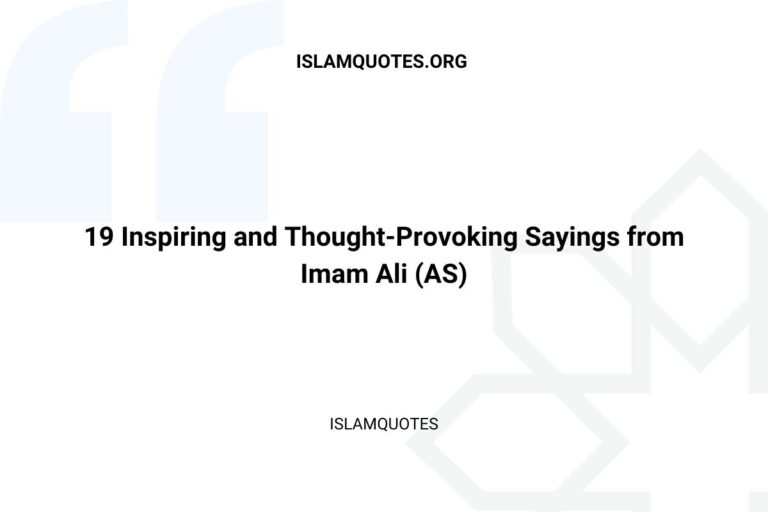“You can never take revenge on a fool except through patience.”
Imam Ali (as), Ghurar al-Hikam, Hadith 10879
Islamic Quote on Patience and Dealing with the Foolish
Introduction
The teachings of Imam Ali (as) are rich with wisdom and practical advice, particularly when it comes to dealing with difficult people and situations. This particular Islamic quote emphasizes the importance of patience and restraint when dealing with foolish individuals. By exercising patience, one can achieve justice and avoid falling into the trap of vengeful actions.
Understanding Patience in Islam
The Concept of Patience in Islamic Teachings
In Islam, patience (sabr) is considered one of the highest virtues. It is a quality that reflects strength, perseverance, and the ability to maintain composure in the face of adversity. This Islamic hadith underscores the necessity of patience as a means to handle interactions with those who act foolishly or irrationally.
The Role of Patience in Achieving Justice
According to the hadith of the day, true justice can only be achieved through patience. When dealing with a fool, responding with anger or seeking revenge only exacerbates the situation. Patience allows for a measured and thoughtful response, which is more likely to lead to a fair and just outcome.
Practical Applications of Patience
Dealing with Difficult People
In daily life, we often encounter individuals whose behavior is challenging or irrational. Imam Ali’s advice is to approach such individuals with patience. This approach not only helps in maintaining one’s own peace of mind but also prevents the situation from escalating into conflict.
The Benefits of Patience
Studies in psychology have shown that patience can lead to better decision-making and improved interpersonal relationships. By staying calm and composed, individuals are more likely to think clearly and act in ways that are beneficial in the long term. This aligns perfectly with the wisdom shared in the Islamic quotation.
Ethical and Moral Dimensions
Patience as an Ethical Principle
Patience is not just a practical tool but also a moral and ethical principle in Islam. It reflects a person’s character and their ability to rise above petty disputes and provocations. This Islam hadith teaches us that exercising patience, especially in challenging interactions, is a sign of strength and nobility.
The Ripple Effect of Patience
When one person acts with patience, it can have a ripple effect, encouraging others to do the same. This creates a more harmonious and just society, as more individuals adopt this virtuous behavior. Thus, the teachings of Imam Ali (as) have both personal and societal benefits.
Conclusion
The Islamic hadith from Imam Ali (as) provides profound insight into the value of patience and restraint, especially when dealing with foolish or irrational individuals. By adopting patience, we can achieve justice, maintain our own peace, and contribute to a more harmonious society. This timeless wisdom remains relevant and applicable in our daily lives, guiding us towards better interactions and personal growth.
For more insightful Islamic quotes, visit Islam Quotes.








